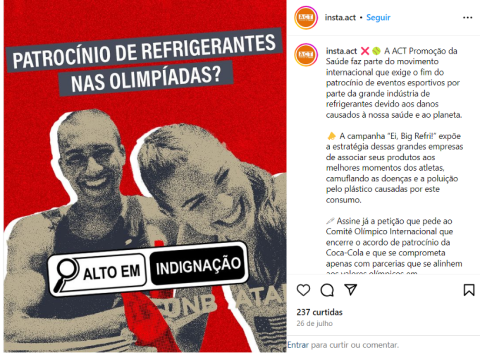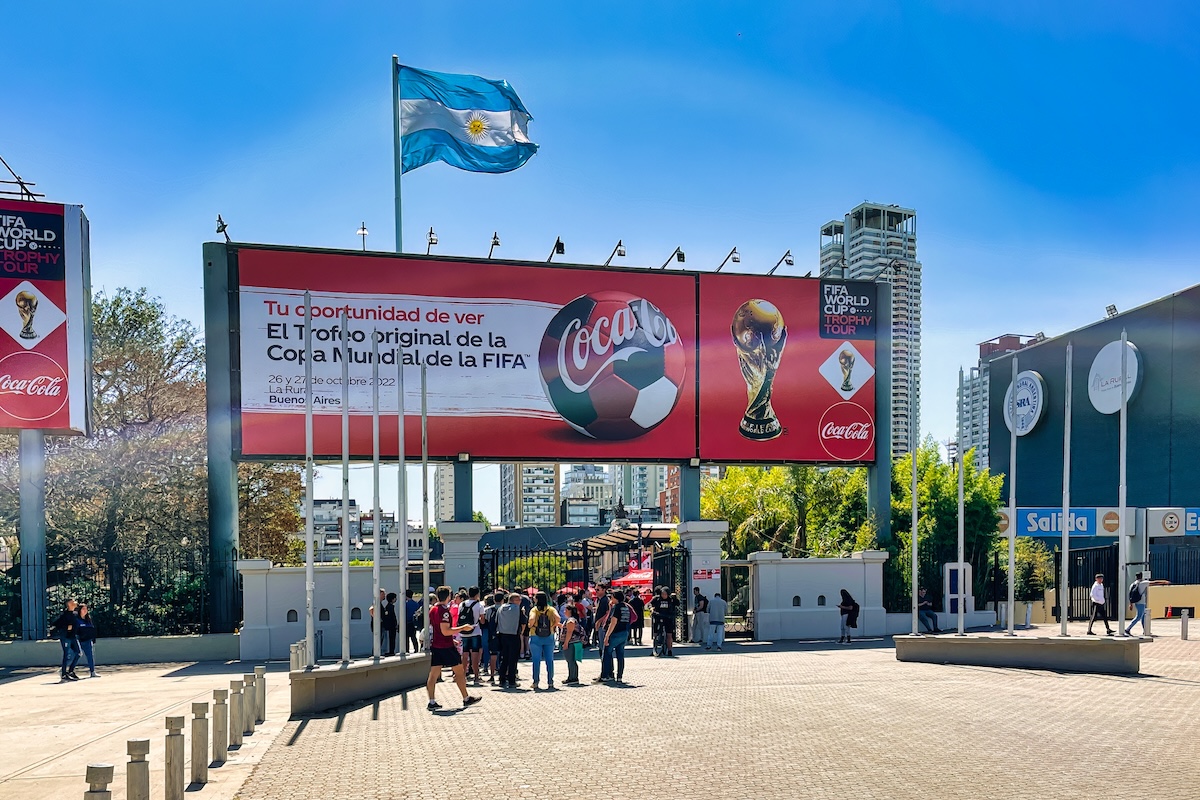Major sporting events such as the Olympics and FIFA World Cup are followed by global audiences - in particular, children and young people. The final of the Men’s World Cup is the most viewed televised sport event with about 1.5 billion viewers. However, the marketing of unhealthy products (including alcohol, unhealthy food and sugary drinks, and fossil fuels) at these events undermines their sporting essence and role in promoting health, physical activity and thriving communities.
Against this background, this year, the 77th session of the World Health Assembly approved a new resolution on leveraging sport events for health and wellbeing, which envisages sport events as platforms for addressing the prevention of non-communicable diseases (NCDs). Building on existing World Health Organization (WHO) guidance and frameworks, it calls on governments to implement effective, evidence-based health promotion measures in sport events and limit the marketing of unhealthy products.
Harmful sports sponsorship do impact young people
Unhealthy products often dominate sponsorships and other forms of marketing at major sport events. For instance, McDonald's and Coca-Cola, known for their ultra-processed products, have long been prominent sponsors of the Olympic Games. Similarly, major alcohol brands including Heineken and Budweiser are prominent sponsors of football events like the FIFA World Cup and UEFA Champions League, blurring the line between the sense of community associated with sport and alcohol harm.
This issue persists even when no- or low-alcohol products of these brands are promoted. While these products may appear less harmful, they serve as a strategic marketing tool that reinforces brand recognition and loyalty. This tactic enables companies to normalize and propagate their primary, harmful alcohol products under the guise of promoting healthier alternatives, ultimately undermining public health objectives and perpetuating the link between alcohol consumption and sports culture.
Just as seen with football, the alcohol company AB InBev was also a sponsor of the Olympic games in 2024. This was the first collaboration between the Olympics and a beer company, which promoted the beer brand ‘Corona Cero’. Movendi International, with the support of ACT Health Promotion and other organisations, called on the IOC to terminate this sponsorship agreement, urging a reevaluation of partnerships that may undermine the integrity and health-promoting mission of the Olympic Games.
The presence of fossil fuel companies in professional cycling, rugby and cricket raises another significant concern. Despite the need for clean energy and sustainability to reduce air pollution, a major NCD risk factor, and advance climate change mitigation, these sports have been entangled with fossil fuel sponsorships that perpetuate the acceptance of practices and products that harm humans and our environment.
These companies aim to normalise the consumption and use of their products by “sportswashing” - embedding themselves within events that symbolise unity, excellence and strength.
These sponsorships have a particularly alarming impact on impressionable young viewers, who are still developing their consumption habits. By associating their brands with sports heroes and national pride, companies cultivate long-term brand loyalty and encourage early introduction to the consumption of unhealthy products. Fast food and sugary drinks, in particular, contribute to rising levels of childhood obesity, while alcohol marketing can lead to early experimentation and exposure to long-term harms.
Demanding more action via the "Kick Big Soda Out" campaign
The "Kick Big Soda Out" campaign, supported by several civil society organizations such as ACT Health Promotion in Brazil, aims to sever ties between sugary beverage companies and sports sponsorships to protect health and the environment. Highlighting sugary drinks’ links to obesity, diabetes, cardiovascular diseases, and other NCDs, the campaign also critiques Big Soda’s role in global plastic pollution and its deceptive marketing targeting youth. The campaign calls on the IOC to commit to partnerships that genuinely align with the Olympic values of “building a better world through sport” and invites public support through its petition. ACT adhered to the campaign and disseminated translated materials on its social media channels, producing additional content using the visual identity of Brazil's front-of-package (FOP) labelling system and discussing other unhealthy industry sponsorships, as well as publishing blog articles to raise awareness.


Countering the Influence: Call to Action and Policy Recommendations
More action is needed and in October 2023, NCD Alliance and Children in All Policies 2030 (CAP-2030) launched a policy report, Selling a Sick Future: Countering Harmful Marketing to Children and Young People across risk factors for NCDs which includes a call to action and 10 recommendations for governments and policymakers to protect young people from marketing of unhealthy products including in sport events. Governments and policymakers must prioritise public health over corporate profits by regulating the types of sponsorships allowed in both global and local sports events.
In particular, we ask for the promotion of mandatory and comprehensive marketing regulation over self-regulation and voluntary commitments. Such comprehensive policies in the sport sector can regulate the promotion of unhealthy products in global and local sport events given the presence of unhealthy industry players in communities and local sport initiatives (here is an example of the tobacco company, Djarum in Indonesia). It is also important to regulate marketing of harmful products during live sport events – Australia has extended their gambling laws and restricts gambling advertisement during live sports broadcasts and online streaming of live sports.
It is time to lead and prioritise health in sports
This year’s Global Week for Action on NCDs focusing on the “Time to Lead” leverages the voice of the global NCD Community in asking governments and policymakers to urgently accelerate the implementation of evidence-based NCD policies and protect communities from the burden of NCDs.
The marketing of unhealthy products at sporting events is an urgent issue that contradicts the ethos of sports as a promoter of health. While corporate sponsorship is important for funding these events, it should not come at the cost of public health. We call on governments and leaders in the sport sector to be coherent and prioritise ethical sponsorships that align with the goals of a healthier and more sustainable future. It’s time to stop selling a sick future to our children and reclaim sports as a positive force for health and well-being.






